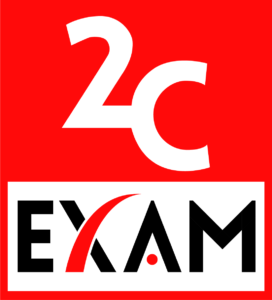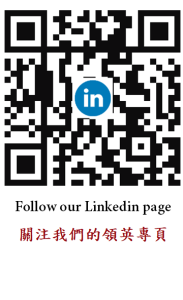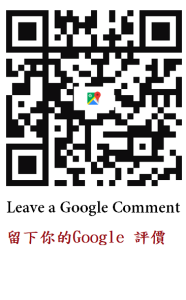Type A & B of exempted applicants
According to Insurance Authority’s Insurance Intermediaries Quality Assurance Scheme (IIQAS), There are 5 types (A, B, C, D, E) of individuals who could be exempted from the IIQE requirement.
Type A individuals could be exempted from IIQE Paper 1 (Principles and Practice of Insurance), IIQE Paper 2 (General Insurance), IIQE Paper 3 (Long Term Insurance) and IIQE Paper 6 (Travel Insurance).
Type B individuals could be exempted from IIQE Paper 5 (Investment-linked Long Term Insurance)
Type C, D and E of exempted applicants
Type C individuals could be exempted from IIQE Paper 1 (Principles and Practice of Insurance), IIQE Paper 2 (General Insurance) and IIQE Paper 6 (Travel Insurance Agents Examination).
Type D individuals could be exempted from at most 4 examinations, including IIQE Paper 1 (Principles and Practice of Insurance), IIQE Paper 2 (General Insurance), IIQE Paper 3 (Long Term Insurance) and IIQE Paper 6 (Travel Insurance Agents Examination).
Type E individuals could be exempted from IIQE Paper 6 (Travel Insurance Agents Examination).
Type A exemption requirements
The following are exempted from IIQE Paper 1, IIQE Paper 2, IIQE Paper 3, and IIQE Paper 6 examinations.
Holders of an approved insurance qualification:
1.Chartered Life Underwriter (CLU);
2.Associate or Fellow of The Chartered Insurance Institute (ACII/FCII);
3.Senior Associate or Fellow of the Australian and New Zealand Institute of Insurance and Finance (ANZIIF (Snr Assoc)/ANZIIF (Fellow))
4.Fellow of the Life Management Institute (FLMI);
5.Chartered Property Casualty Underwriter (CPCU);
6.Hong Kong Diploma in Insurance Studies of The Insurance Institute of Hong Kong/The Chartered Insurance Institute
Holders of an approved actuarial qualification:
1.Fellow of the Institute of Actuaries of England (FIA);
2.Fellow of the Faculty of Actuaries in Scotland (FFA);
3.Fellow of the Institute of Actuaries of Australia (FIAA);
4.Fellow of the Society of Actuaries of the United States of America (FSA).
Type B exemption requirements
The following are exempted from IIQE Paper 5 examination.
•Holders of recognized professional qualifications in insurance and investment:
1.Chartered Life Underwriter (CLU) who has passed the elective paper: “HS 328 Investments” of the CLU qualifying examination;
2.Chartered Financial Consultant (ChFC);
3.Certified Financial Planner (CFP);
4.Person who has passed the Foundation Programme Examination of the Hong Kong Securities and Investment Institute (FPE);
5.Person who has passed the Diploma Programme Examination of the Hong Kong Securities and Investment Institute (DPE);
6.HKSI Practicing Certificate of the Hong Kong Securities and Investment Institute (Passed HKSI Papers 1, 7, 8)
7.HKSI Specialist Certificate of the Hong Kong Securities and Investment Institute;
8.HKSI Professional Diploma in Financial Markets of the Hong Kong Securities and Investment
9.Institute.
•Holders of recognized professional qualifications in actuarial science:
1.Fellow of the Institute of Actuaries of England (FIA);
2.Fellow of the Faculty of Actuaries in Scotland (FFA);
3.Fellow of the Institute of Actuaries of Australia (FIAA);
4.Fellow of the Society of Actuaries of the United States of America (FSA).
Type C exemption requirements
Insurance intermediaries who fulfill all of the following requirements:
1.Practicing in the insurance intermediary business in Hong Kong immediately before 1st January 2000
2.Holder of the Certificate of Proficiency in General Insurance Studies issued by The Hong Kong Federation of Insurers
Are exempted from IIQE Paper 1 (Principles and Practice of Insurance), IIQE Paper 2 (General Insurance) and IIQE Paper 6 (Travel Insurance Agents Examination).
Type D exemption requirements
•Insurance intermediaries who are practicing in the insurance intermediary business in Hong Kong immediately before 1st January 2000
•Insurance intermediaries in possession of five years’ proven experience in insurance business in Hong Kong within the six-year period immediately before 1st January 2000
Can be exempted from sitting for IIQE Paper 1 (Principles and Practice of Insurance) , and the following paper as appropriate (whichever relates to the specific experience an applicant has obtained) :
1.IIQE Paper 2 (General Insurance)
2.IIQE Paper 3 (Long Term Insurance)
3.IIQE Paper 6 (Travel Insurance)
•Only insurance intermediaries who possess proven experience in both general and long term insurance business can be exempted from all papers i.e. IIQE Paper 1, IIQE Paper 2, IIQE Paper 3 and IIQE Paper 6.
Type D work experience vs exempted papers
| Able to waive IIQE Paper 1 Principle and Practice of Insurance | Able to waive IIQE Paper 2 General Insurance | Able to waive IIQE Paper 3 Long Term Insurance | Able to waive IIQE Paper 6 Travel Insurance Agents |
| ✓ | ✓ | ||
| ✓ | ✓ | ||
| ✓ | ✓ |
Type E exemption requirements
Applicants who have passed both of the following IIQE Papers:
1.Principles and Practice of Insurance (Paper 1)
2.General Insurance (Paper 2)
Can be exempted from sitting for IIQE Paper 6 (Travel Insurance Agents Examination Paper).
How can we help?
2CExam provides HKSI LE, IIQE, EAQE and SQE related exam preparation materials. We sell mock question banks for IIQE Papers 1, 2, 3, 5 and MPFE in Chinese and English; and bibles for IIQE Papers 1, 2, 3, MPFE in Chinese. We also offer 1 on 1 tutorial services. Besides, we have also made free tutorial videos for IIQE Papers 1, 2, 3 and MPFE and posted on public channels such as Youtube/ Bilibili/ Tencent/ Iqiyi. 2CExam has been an exam training expert for years. Should you need any help please visit www.2cexam.com or contact us through:
Phone +852 2110 9644 Email: [email protected] Wechat: hk2cexam WhatsApp: +852 9347 2064
Please support us by leaving comments and likes if you think this article helps you!
You can scan or click on the QR codes to visit our social media.
Latest Article
Categories
過往文章
Contact US
-
Phone:
+852 2110 9644
-
Email:
-
WhatsApp
+852 9347 2064
-
WeChat
hk2cexam
Interesting Articles
The differences between a SFC Responsible Officer (RO), HKMA Executive Officer (EO) and a Sale Representative (Rep)
The different regulatory agencies Before explaining the differences between a responsible officer (RO), HKMA’s executive officer (EO) and sales representative (Rep), you must first know that there are two regulatory agencies that regulates companies that are engaging in securities business: the Securities and Futures Commission (SFC) and Hong Kong Monetary Authority (HKMA).The regulatory…
What kind of updates will be made in different versions of IIQE study notes?
What updates will be made in the newest version of IIQE study notes has been a hot question from our clients. The answer may disappoint you or make you relieved. There are two kinds of major updates: Changes in Laws, Regulations and Regulatory Body There will not be unreasonable or unnecessary modifications in…
What kind of updates did the HKSI make in the LE study manual?
Many of our clients are frustrated with needing to retake the exam, or some are going to take the exam right before the HKSI is going to update the manual. They are concerned with what updates the HKSI would make on their study manual. Below we will uncover what differences will be commonly found between…
How to apply for an insurance intermediary IA license in Hong Kong?
Many students who have no experience in the insurance industry feel puzzled about the procedures regarding applying for a license. This article mainly teaches students how to prepare to apply for a insurance license. First of all, to apply for an insurance license, you need to meet the requirements of the “Fit and…
How to apply for an SFC Hong Kong Securities License?
Many students who have no experience in the securities industry feel puzzled about the procedures regarding applying for a license. This article mainly teaches students how to prepare to apply for a securities license. First, to apply for a securities license, you need to meet the ”Guidelines on Competence” issued by the securities and…
Which IIQE insurance exam paper is more difficult? Which is easier? I don’t have any insurance knowledge, where and how should I get started?
Which IIQE insurance exam paper is more difficult? Which is easier? There are 4 most popular papers in the IIQE exam: IIQE Paper 1, 2, 3, 5. If you sort by difficulty, IIQE Paper 1 will be the most difficult because the concepts and content are broad and have the most content compared to…
Which of the HKSI LE securities exams is more difficult? Which is easier? I haven’t studied finance before, where and how should I get started?
What are the contents of the HKSI LE exam papers? The Licensing Examination for Securities and Futures Intermediaries (HKSI LE) paper 1 is considered as the basic course for aspiring Securities and Futures Practitioners. Anyone who wishes to enter the industry – after the emergence of the securities examination system needs to take the…
Are the EAQE/SQE video courses on 2CExam’s Youtube channel still applicable to the exams today?
Are the EAQE/SQE video courses made by 2CExam a few years ago still applicable to the examinations today? In recent years, 2CExam has launched a series of online video courses for the EAQE/SQE exam. The courses integrate the most important content in the entire examination and are covered by a seasoned tutor from scratch.…
Are the IIQE Paper 1 video courses on 2CExam’s Youtube channel still applicable to the exams today?
Are the IIQE Paper 1 courses uploaded by 2CExam a few years ago still applicable to the exam? In recent years, 2CExam has launched a series of online video courses for the IIQE Paper insurance exam. The courses integrate the most important content in the entire exam paper and are covered by seasoned instructor from…
Are the HKSI LE Paper 1 video courses on 2CExam’s Youtube channel still applicable to the exams today?
Are the HKSI LE Paper 1 video courses made by 2CExam a few years ago still applicable to the examinations today? In recent years, 2CExam has launched a series of online video courses for the HKSI LE Papers. The courses integrate the most important content in the entire examination paper and are covered by…









